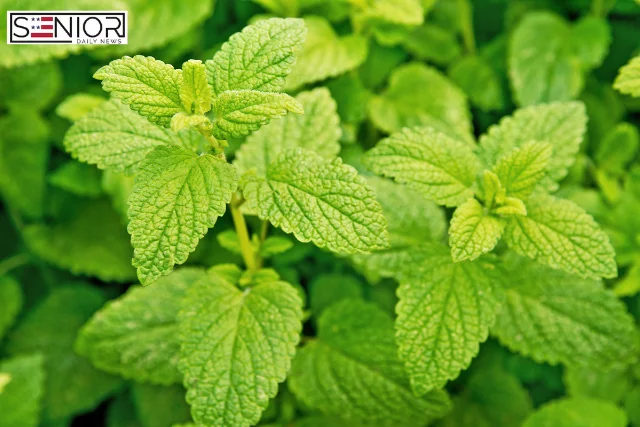Herbal Remedy for Memory, Anxiety Relief, and Alzheimer’s Prevention

As we age, maintaining a sharp memory and emotional balance becomes increasingly important. Many seniors want to preserve mental clarity, reduce anxiety, and lower the risk of cognitive decline—without relying solely on prescription medications. This is where a thoughtfully chosen herbal remedy can make a difference. While no single plant or supplement is a magic cure, research suggests that certain herbs may support brain health, calm the mind, and possibly help delay the progression of memory-related diseases like Alzheimer’s.
For older adults who value a natural approach, understanding which herbs are worth considering—and how to use them safely—can be a meaningful step toward better mental well-being.
Why Memory and Anxiety Support Matters for Seniors
Memory loss and anxiety can affect day-to-day life more than we often realize. Misplacing items, forgetting names, or feeling easily overwhelmed can reduce confidence and independence. For many seniors, mild forgetfulness is normal, but chronic stress or anxiety can accelerate cognitive decline. Studies have linked ongoing anxiety to an increased risk of dementia. That’s why combining stress management with memory support is so powerful.
A herbal remedy approach offers gentle support for the brain and nervous system, often with fewer side effects than pharmaceutical options. However, it’s important to approach herbal use with the same care you’d give to prescription drugs—especially if you’re managing other health conditions.
Understanding Alzheimer’s Prevention
Alzheimer’s disease is a progressive neurological condition that damages brain cells and impairs thinking, memory, and behavior. While there is no known cure, research shows that healthy lifestyle choices—including regular exercise, a brain-friendly diet, social engagement, and stress reduction—can help lower the risk. Certain herbs have also been studied for their potential role in protecting brain cells from oxidative stress and inflammation, both of which are linked to Alzheimer’s progression.
Top Herbal Remedies for Memory, Anxiety Relief, and Alzheimer’s Support
Let’s look at some of the most researched herbs that seniors may consider as part of a brain wellness plan.
1. Ginkgo Biloba – The Memory Booster
Ginkgo biloba has been used in traditional medicine for centuries to improve circulation and enhance brain function. Modern studies suggest it may help increase blood flow to the brain, which can improve mental clarity and memory recall. Some research even indicates ginkgo might slow cognitive decline in people with early-stage dementia.
How to use: Often taken as a standardized extract in capsule form.
Caution: May interact with blood-thinning medications like warfarin or aspirin.
2. Bacopa Monnieri – The Cognitive Enhancer
Known as “Brahmi” in Ayurvedic medicine, bacopa has a reputation for boosting learning ability and memory retention. It’s also believed to have anti-anxiety effects. This herb works gradually, so benefits may take several weeks to become noticeable.
How to use: Usually taken in capsule or powder form, often with meals.
Caution: May cause mild digestive upset in sensitive individuals.
3. Ashwagandha – The Stress Reducer
Ashwagandha is an adaptogenic herb, meaning it helps the body manage stress. Chronic stress is a known enemy of brain health, so calming the nervous system can indirectly protect memory. Studies also suggest ashwagandha may improve focus and reduce anxiety symptoms.
How to use: Commonly taken as a capsule, tablet, or powdered root mixed into warm milk or tea.
Caution: May not be suitable for people with thyroid conditions without medical guidance.
4. Lemon Balm – The Mood Lifter
This gentle, lemon-scented herb is often used to reduce anxiety, promote relaxation, and improve sleep quality—key factors in supporting brain function. Lemon balm can also help with mild agitation in dementia patients.
How to use: As a tea, tincture, or capsule.
Caution: May cause drowsiness when combined with sedatives.
5. Turmeric (Curcumin) – The Brain Protector
Turmeric, particularly its active compound curcumin, has strong anti-inflammatory and antioxidant properties. Chronic inflammation is linked to many age-related conditions, including Alzheimer’s disease. Some research suggests curcumin can help reduce amyloid plaques in the brain, a hallmark of Alzheimer’s.
How to use: Added to food, taken as a supplement, or brewed as a golden milk latte.
Caution: May interact with blood thinners and gallbladder conditions.
6. Gotu Kola – The Circulation Supporter
Gotu kola has been valued in traditional medicine for improving circulation, which is vital for brain function. It may help enhance memory and reduce anxiety while supporting overall mental clarity.
How to use: Available as a tea, tincture, or capsule.
Caution: Should be used cautiously if you have liver disease.
How Herbal Remedies Work for Brain Health
Most memory and anxiety-supportive herbs work through a combination of mechanisms:
- Improving blood flow to the brain
- Reducing inflammation that can damage brain cells
- Providing antioxidants to protect neurons from free radical damage
- Balancing neurotransmitters that regulate mood and focus
- Supporting stress resilience to protect memory
While each herb works differently, they often perform best when combined with lifestyle habits that promote brain wellness.
Lifestyle Pairings for Maximum Benefits
Herbs are not a standalone solution—they work best alongside healthy habits that keep the mind sharp and the body active. Seniors can maximize the effectiveness of their chosen herbal remedy by:
- Eating a nutrient-rich diet with plenty of leafy greens, berries, and omega-3s
- Engaging in regular physical activity like walking, swimming, or tai chi
- Staying mentally active through puzzles, reading, or learning new skills
- Maintaining strong social connections
- Getting adequate sleep for memory consolidation
- Managing chronic health conditions, especially high blood pressure and diabetes
Safety Tips for Seniors Using Herbal Remedies
While herbs can be powerful allies for brain health, seniors must take extra precautions:
- Consult your doctor first – Especially if you take prescription medications or have chronic health conditions.
- Start with one herb at a time – This makes it easier to identify side effects.
- Use standardized extracts – These provide consistent doses and higher quality control.
- Be patient – Many herbs take weeks or months to show noticeable effects.
- Avoid self-diagnosis – Memory issues can sometimes be a sign of underlying medical problems that require immediate attention.
The Role of Herbal Remedies in Alzheimer’s Prevention
No herb can guarantee protection against Alzheimer’s, but the right combination may help create a healthier brain environment. Herbs with anti-inflammatory and antioxidant effects, like turmeric and ginkgo, are particularly promising in slowing the processes that damage brain cells. Combined with stress-reducing herbs like ashwagandha and lemon balm, they can help seniors maintain better mental balance—potentially delaying the onset of cognitive impairment.
Potential Side Effects and Interactions
Even natural herbs can cause side effects or interact with medications. Some common concerns include:
- Increased bleeding risk with blood thinners
- Lowered blood sugar with diabetes medications
- Changes in blood pressure when combined with hypertension drugs
- Sedation when mixed with sleep aids or anxiety medications
Always read product labels carefully and purchase from reputable brands to reduce the risk of contamination or mislabeling.
Realistic Expectations
While an herbal remedy can offer gentle, consistent support for memory, anxiety, and Alzheimer’s prevention, it’s not a miracle solution. The best outcomes happen when herbs are part of a broader wellness plan that includes a brain-healthy diet, regular movement, mental stimulation, and emotional support.
Frequently Asked Questions
Q1: Can herbal remedies replace my prescription medication?
No. Herbal remedies can complement traditional treatment but should not replace medications prescribed by your doctor without professional guidance.
Q2: How long before I notice results?
Some herbs, like lemon balm, may offer calming effects within hours, while others, like bacopa, may take 6–12 weeks for noticeable memory improvements.
Q3: Are herbal remedies safe for seniors with multiple health conditions?
They can be, but medical supervision is essential to avoid dangerous interactions with medications or underlying health issues.
Q4: Can I combine more than one herbal remedy?
Yes, but start slowly and monitor your body’s response. Blends designed for cognitive health may combine herbs like ginkgo, bacopa, and ashwagandha.
Q5: What is the best herbal tea for memory and relaxation?
A blend of lemon balm and gotu kola can be soothing for the mind while supporting focus.
Image Source: Canva






